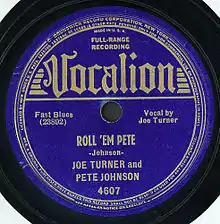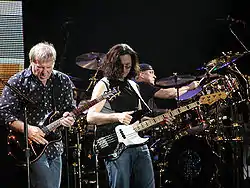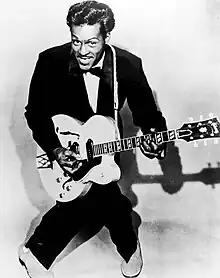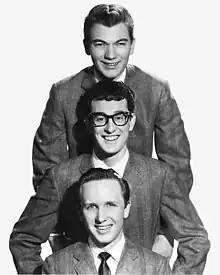The Rock Music Portal
Rock is a broad genre of popular music that originated as "rock and roll" in the United States in the late 1940s and early 1950s, developing into a range of different styles from the mid-1960s, particularly in the U.S. and the United Kingdom. It has its roots in 1940s and 1950s rock and roll, a style that drew directly from the blues and rhythm and blues genres of African-American music and from country music. Rock also drew strongly from genres such as electric blues and folk, and incorporated influences from jazz, classical, and other musical styles. For instrumentation, rock has centered on the electric guitar, usually as part of a rock group with electric bass guitar, drums, and one or more singers. Usually, rock is song-based music with a 4
4 time signature using a verse–chorus form, but the genre has become extremely diverse. Like pop music, lyrics often stress romantic love but also address a wide variety of other themes that are frequently social or political. Rock was the most popular genre of music in the U.S. and much of the Western world from the 1950s to the 2010s.
Rock musicians in the mid-1960s began to advance the album ahead of the single as the dominant form of recorded music expression and consumption, with the Beatles at the forefront of this development. Their contributions lent the genre a cultural legitimacy in the mainstream and initiated a rock-informed album era in the music industry for the next several decades. By the late 1960s "classic rock" period, a number of distinct rock music subgenres had emerged, including hybrids like blues rock, folk rock, country rock, southern rock, raga rock, and jazz rock, which contributed to the development of psychedelic rock, influenced by the countercultural psychedelic and hippie scene. New genres that emerged included progressive rock with extended artistic elements, glam rock, highlighting showmanship and visual style, and the diverse and enduring subgenre of heavy metal, with emphasis on volume, power, and speed. In the second half of the 1970s, punk rock reacted by producing stripped-down, energetic social and political critiques. Punk was an influence in the 1980s on new wave, post-punk and eventually alternative rock.
From the 1990s, alternative rock began to dominate rock music and break into the mainstream in the form of grunge, Britpop, and indie rock. Further fusion subgenres have since emerged, including pop-punk, electronic rock, rap rock, and rap metal. Some movements were conscious attempts to revisit rock's history, including the garage rock/post-punk revival in the 2000s. Since the 2010s, rock has lost its position as the pre-eminent popular music genre in world culture, but remains commercially successful. The increased influence of hip-hop and electronic dance music can be seen in rock music, notably in the techno-pop scene of the early 2010s and the pop-punk-hip-hop revival of the 2020s. (Full article...)
General images -
Selected article
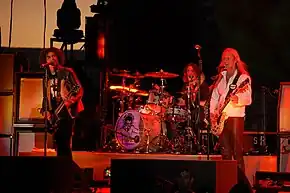
Often associated with grunge music, Alice in Chains' sound incorporates heavy metal elements. The band is known for its distinctive vocal style, which often included the harmonized vocals between Staley and Cantrell (and later Cantrell and DuVall). Cantrell started to sing lead vocals on the 1992 acoustic EP Sap, and his role continued to grow in the following albums, making Alice in Chains a two-vocal band.
Alice in Chains rose to international fame as part of the grunge movement of the early 1990s, along with other Seattle bands such as Nirvana, Pearl Jam, and Soundgarden. They achieved success during the era with the albums Facelift (1990), Dirt (1992) and Alice in Chains (1995), as well as the EP Jar of Flies (1994). Although never officially disbanding, Alice in Chains was plagued by extended inactivity from 1996 onward, due to Staley's substance abuse, which resulted in his death in 2002. The band regrouped in 2006, with DuVall taking over as lead vocalist full-time, and they have since released three more albums: Black Gives Way to Blue (2009), The Devil Put Dinosaurs Here (2013), and Rainier Fog (2018).
Since its formation, Alice in Chains has released six studio albums, three EPs, three live albums, four compilations, two DVDs, 43 music videos, and 32 singles. They have sold more than 30 million records worldwide, and over 20 million records in the US alone. The band has had 18 Top 10 songs on Billboard's Mainstream Rock Tracks chart, 5 No. 1 hits, and received 11 Grammy Award nominations. They were ranked number 34 on VH1's 100 Greatest Artists of Hard Rock and as the 15th greatest live band by Hit Parader. (Full article...)
Selected biography
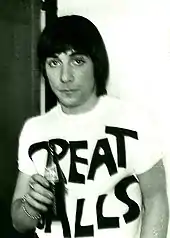
Moon grew up in Wembley and took up the drums during the early 1960s. After playing with a local band, the Beachcombers, he joined the Who in 1964 before they recorded their first single. Moon was recognised for his drumming style, which emphasised tom-toms, cymbal crashes, and drum fills. Throughout his tenure with the Who, his drum kit steadily grew in size, and (along with Ginger Baker) he has been credited as one of the earliest rock drummers to regularly employ double bass drums in his setup. Moon occasionally collaborated with other musicians and later appeared in films, but considered playing in the Who his primary occupation, and remained a member of the band until his death. In addition to his talent as a drummer, Moon developed a reputation for smashing his kit on stage and destroying hotel rooms on tour. He was fascinated with blowing up toilets with cherry bombs or dynamite, and destroying television sets. Moon also enjoyed touring and socialising, and became bored and restless when the Who were inactive. His 21st birthday party in Flint, Michigan, has been cited as a notorious example of decadent behaviour by rock groups.
Moon suffered a number of setbacks during the 1970s, most notably the accidental death of chauffeur Neil Boland and the breakdown of his marriage. He suffered from alcoholism and acquired a reputation for decadence and dark humour; his nickname was "Moon the Loon". While touring with the Who, on several occasions he passed out on stage and was hospitalised. By the time of their final tour with him in 1976, and particularly during production of The Kids Are Alright and Who Are You, the drummer's deterioration was evident. Moon moved back to London from Los Angeles in 1978, dying that September from an overdose of clomethiazole, a drug intended to treat or prevent symptoms of alcohol withdrawal.
Moon's drumming continues to be praised by critics and musicians. He was posthumously inducted into the Modern Drummer Hall of Fame in 1982, becoming the second rock drummer to be chosen, and in 2011 he was voted the second-greatest drummer in history by a Rolling Stone readers' poll. Moon was inducted into the Rock and Roll Hall of Fame in 1990 as a member of the Who. (Full article...)
Selected album
Bat Out of Hell II: Back into Hell is the sixth studio album by American rock singer Meat Loaf and was written and produced by Jim Steinman. It was released on September 14, 1993, sixteen years after Meat Loaf's first solo album Bat Out of Hell. The album reached number 1 in the United States, United Kingdom and Canada. Five tracks were released as singles, including "I'd Do Anything for Love (But I Won't Do That)", which reached number 1 in 28 countries.
The album was released by Virgin Records outside of North America, where it was released by MCA. The third part of the Bat trilogy, Bat Out of Hell III: The Monster Is Loose, was released in 2006.
Like the first album of the trilogy, Bat Out of Hell II was a commercial success. It sold over 14 million copies worldwide. (Full article...)
Selected song
"Won't Get Fooled Again" is a song by the English rock band the Who, written by Pete Townshend. It was released as a single in June 1971, reaching the top 10 in the UK, while the full eight-and-a-half-minute version appears as the final track on the band's 1971 album Who's Next, released that August. In the US, the single entered Billboard on 17 July, reaching No. 15.
Townshend wrote the song as a closing number of the Lifehouse project, and the lyrics criticise revolution and power. The track is known for a staccato keyboard figure, played on a simple home organ with a “rhythm” feature that produced a synth-like effect. The Who tried recording the song in New York in March 1971, but re-recorded a superior take at Stargroves the next month using the organ from Townshend's original demo. Ultimately, Lifehouse as a project was abandoned in favour of Who's Next, a straightforward album, where it also became the closing track. It has been performed as a staple of the band's setlist since 1971, often as the set closer, and was the last song drummer Keith Moon played live with the band.
As well as being a hit, the song has achieved critical praise, appearing as one of Rolling Stone's The 500 Greatest Songs of All Time. It has been covered by several artists, such as Van Halen, who took their version to No. 1 on the Billboard Album Rock Tracks chart. It has been used for several TV shows and films and in some political campaigns. (Full article...)
Selected picture

Mike Dirnt, singer and bassist of Green Day, stands on the Centerstage during Rock im Park ("Rock in the Park") Festival 2013.
Did you know (auto-generated)
- ... that the neofolk album The Lone Furrow features several guest vocalists from heavy metal bands, and critics thought it might appeal to fans of that genre?
- ... that during his tenure as Governor of Central Java, Muhammad Ismail banned rock music concerts and car rallies?
- ... that Shin Hae-chul, who previously made hard rock and heavy metal albums, was inspired by big band music when he made The Songs for the One?
- ... that the music style of singer-songwriter Kui Lee featured a blend of traditional Hawaiian music, jazz, blues, and rock and roll?
- ... that the heavy metal band Cradle of Filth released a T-shirt that was so offensive that several people were arrested for wearing it?
- ... that raw material waste from the West influenced a generation of rock music in China?
Selected genre
Glam metal (also known as hair metal or pop metal) is a subgenre of heavy metal that features pop-influenced hooks and guitar riffs, upbeat rock anthems, and slow power ballads. It borrows heavily from the fashion and image of 1970s glam rock.
Early glam metal evolved directly from the glam rock movement of the 1970s, as visual elements taken from acts such as T. Rex, the New York Dolls, and David Bowie (and to a lesser extent, the punk and new wave movements taking place concurrently in New York City) were fused with the decidedly more heavy metal leaning and theatrical acts such as Alice Cooper and Kiss. The first examples of this fusion began appearing in the late 1970s and early 1980s in the United States, particularly on the Los Angeles Sunset Strip music scene. Early glam metal bands include Mötley Crüe, Hanoi Rocks, Night Ranger, Ratt, Quiet Riot, Twisted Sister, Bon Jovi, and Dokken. Glam metal achieved significant commercial success from approximately 1983 to 1991, bringing to prominence bands such as Poison, Skid Row, Cinderella and Warrant. From a strictly visual perspective, glam metal is defined by flashy and tight-fitting clothing, makeup, and an overall androgynous aesthetic in which the traditional "denim & leather" aspect of heavy metal culture is replaced by spandex, lace, and usually heavy use of bright colours. (Full article...)
Selected audio
Related portals
WikiProjects
- WikiProject Rock music (Main rock project)
- WikiProject Metal
- WikiProject Black Metal
- WikiProject Alternative music
- WikiProject Punk music
- WikiProject Progressive Rock
- WikiProject Music Directory
Things you can do
Expand: College rock, Electronic rock, Pop rock
Clean Up: Instrumental rock, Rap rock, New wave, Industrial rock, Progressive metal, Southern rock, Folk rock, Funk rock, Space rock
Add Sources: Pagan rock
Join one of the many WikiProjects pertaining to Rock music.
News
No recent news
More articles -
"Today" is a song by American alternative rock band the Smashing Pumpkins, written by lead vocalist and guitarist Billy Corgan. The song, though seemingly upbeat, contains dark lyrics; Corgan wrote the song about a day in which he was having suicidal thoughts. The contrast between the grim subject matter of the song and the soft instrumental part during the verses, coupled with use of irony in the lyrics, left many listeners unaware of the song's tale of depression and desperation. The song alternates between quiet, dreamy verses and loud choruses with layered, distorted guitars.
"Today" was released in September 1993 as the second single from the band's second album and major label debut, Siamese Dream. "Today" and its follow-up "Disarm" are credited in AllMusic for popularizing the band and "sen[ding] [Siamese Dream] into the stratosphere". "Today" has been generally well received by critics; a Blender article described it as having "achieved a remarkable status as one of the defining songs of its generation, perfectly mirroring the fractured alienation of American youth in the 1990s". (Full article...)More did you know...
- ... that David Bowie's first gig as lead singer was at the Green Man, Blackheath?
- ... that Carlton le Willows Academy alumni include cricketer Mark Footitt, Air Supply singer/guitarist Graham Russell, and balloonist Janet Folkes?
- ... that the video for Marilyn Manson's soft-rock ballad "Running to the Edge of the World" was widely condemned for its depiction of violence against women?
- ... that Susan Beschta was a punk rocker and federal judge?
.jpg.webp)
- ... that the FM Non-Duplication Rule adopted by the FCC 59 years ago led to the creation of the album-oriented and classic rock radio formats?
- ... that The Elvis Dead, a retelling of Evil Dead II in the style of Elvis Presley, features songs such as "Standing in a State of Shock", "I've Been Possessed", and "Wrapped Up in Vines"?
Major topics
Subcategories
Associated Wikimedia
The following Wikimedia Foundation sister projects provide more on this subject:
-
 Commons
Commons
Free media repository -
 Wikibooks
Wikibooks
Free textbooks and manuals -
 Wikidata
Wikidata
Free knowledge base -
 Wikinews
Wikinews
Free-content news -
 Wikiquote
Wikiquote
Collection of quotations -
 Wikisource
Wikisource
Free-content library -
 Wikiversity
Wikiversity
Free learning tools -
 Wikivoyage
Wikivoyage
Free travel guide -
 Wiktionary
Wiktionary
Dictionary and thesaurus
-
 List of all portalsList of all portals
List of all portalsList of all portals -
 The arts portal
The arts portal -
 Biography portal
Biography portal -
 Current events portal
Current events portal -
 Geography portal
Geography portal -
 History portal
History portal -
 Mathematics portal
Mathematics portal -
 Science portal
Science portal -
 Society portal
Society portal -
 Technology portal
Technology portal -
 Random portalRandom portal
Random portalRandom portal -
 WikiProject PortalsWikiProject Portals
WikiProject PortalsWikiProject Portals
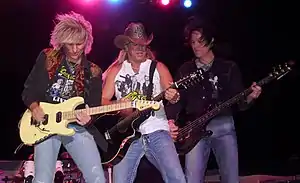

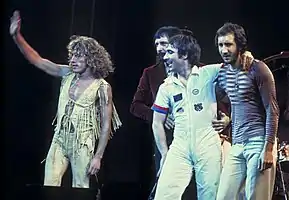
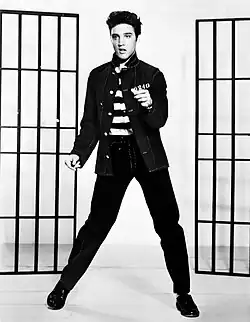

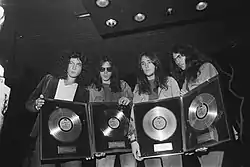
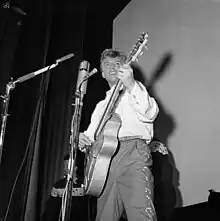
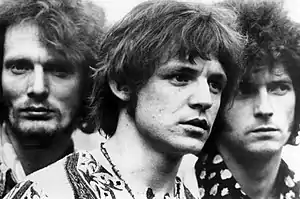
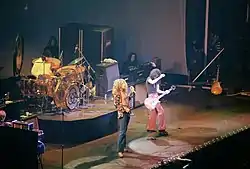
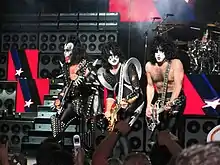
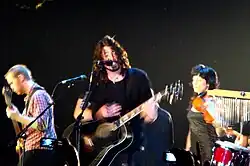
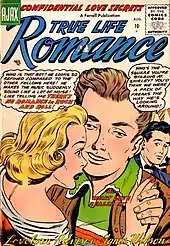
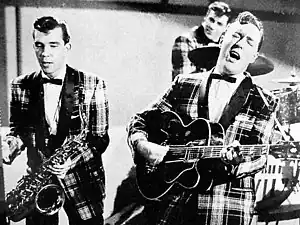
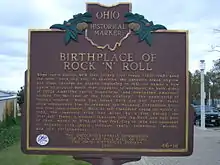
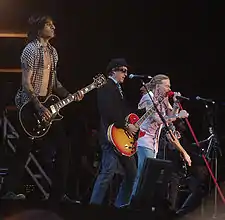
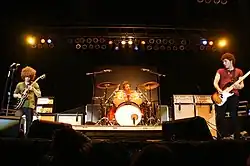
.JPG.webp)
